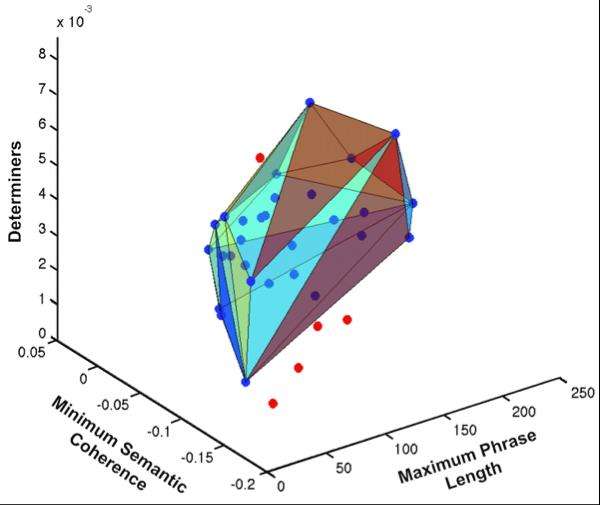Automated Speech Analysis Helps Predict Psychosis Onset
 A small proof-of-principal study by researchers at Columbia University Medical Center found an automated speech analysis program was able to differentiate between at-risk young people who developed psychosis and those who did not, with 100 percent accuracy.
A small proof-of-principal study by researchers at Columbia University Medical Center found an automated speech analysis program was able to differentiate between at-risk young people who developed psychosis and those who did not, with 100 percent accuracy.
The study, published Aug. 26 in NPJ-Schizophrenia, followed participants over a two-and-a-half year period and found that the computerized analysis delivered a more precise classification than clinical ratings.
Speech can give clues about disorganized thoughts, and a machine can supplement what is heard in a traditional interview by precisely measuring the variables. Study participants were recorded in an open-ended, narrative interview, which was then transcribed and analyzed by computer for patterns of speech such as semantics and syntax.
The analysis involves establishing how well a subject stayed on topic, phrase length, and use of determiner words that link the phrases. Indicators that predicted the onset of psychosis included breaks in the flow of meaning from sentence to sentence, and shorter descriptions with less detail.
The speech analysis program correctly distinguished between the five individuals who later experienced a psychotic episode and the 29 who did not.
About one percent of the population between the age of 14 and 27 is considered to be at clinical high risk (CHR) for psychosis. Tools to help identify those that will go on to have a psychotic episode could help delay or prevent the onset of serious mental illness.
Research still needs to be done with a larger cohort of at-risk individuals to test the reliability and robustness of the automated analysis program.
Researchers from New York State Psychiatric Institute and the IBM T.J. Watson Research Center were also involved in the study.